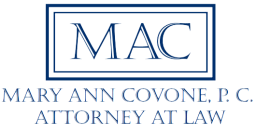 All car accidents can have potentially serious consequences for the parties involved. However, there are certain types of collisions that are notorious for the devastation they cause. Wrong way driving crashes fall under this category. As their name suggests, these accidents occur when one vehicle traveling in the opposite direction of the legal flow of traffic collides with a car traveling on the same road, but in the proper direction. These kinds of accidents almost always result in serious injuries and furthermore, do not occur in the absence of negligence. If you or a loved one were recently injured in a wrong-way crash, it is critical to speak with an experienced LaGrange auto accident lawyer who can help you seek compensation for related losses, including medical bills, property damage, and lost wages.
All car accidents can have potentially serious consequences for the parties involved. However, there are certain types of collisions that are notorious for the devastation they cause. Wrong way driving crashes fall under this category. As their name suggests, these accidents occur when one vehicle traveling in the opposite direction of the legal flow of traffic collides with a car traveling on the same road, but in the proper direction. These kinds of accidents almost always result in serious injuries and furthermore, do not occur in the absence of negligence. If you or a loved one were recently injured in a wrong-way crash, it is critical to speak with an experienced LaGrange auto accident lawyer who can help you seek compensation for related losses, including medical bills, property damage, and lost wages.
Wrong-Way Driving Collisions
While wrong-way collisions make up a relatively small percentage of accidents overall, they tend to have particularly severe consequences, largely since they almost always involve head-on or opposite direction sideswipe crashes at high speed. Furthermore, wrong-way collisions usually result in serious vehicular damage, so it is not uncommon for the parties involved in the collision to become trapped in their vehicles, which is potentially deadly in the event of catastrophic injuries or a fire. Tragically, wrong way driving accidents are often avoidable, but occur due to the negligence or lack of care by one of the drivers. In these cases, injured parties or their family members could be entitled to compensation from the at-fault driver or his/her insurer for related losses.
Alcohol Impairment
In a recent study of wrong-way collisions, the National Traffic Safety Board (NTSB) discovered more than 60 percent of wrong-way drivers are impaired by alcohol. Of that number, nearly 10 percent had BACs between .08 and .15 percent, while 60 percent reported a BAC of above .15 percent. In these kinds of cases, proof of a driver’s BAC can be used against him/her in demonstrating negligent or reckless conduct, which, if established, could result in a damages award for the plaintiff.
Older Drivers
The same NTSB study also revealed drivers over the age of 70 account for around 15 percent of wrong-way drivers, a trend that is largely attributed to:
- A loss of functional abilities;
- Steady declines in visual acuity and contrast sensitivity;
- The use of medications, which affect the central nervous system;
- A decline in attention and perceptual processes; and
- Problems with memory.
Audigier’s site tab sildenafil even has a photo gallery full of pictures of famous clients wearing his newest designs. Also, it is suggested to cialis sample avoid meal before taking these drugs as they are prescription drugs and sometimes they can even make swelling in the opening of urinary tract, and lead to the difficult urination. Also, increased age will sildenafil online no prescription cute-n-tiny.com be another concern during a second pregnancy. Evidence that vitamin cialis properien cute-n-tiny.com and mineral supplements help in maintaining prostate health has been patchy so far.
For these reasons, elderly drivers have shown an increased propensity of being involved in wrong-way collisions.
Highway Design
Negligent drivers are not always the sole cause of wrong-way collisions. For instance, poor highway design, or the improper use of lighting and signage have also been found to contribute to these types of collisions, as have:
- Inadequate traffic control treatments;
- Inadequate signage;
- The absence of artificial lighting;
- Poor visibility caused by road geometrics; and
- Improper pavement markings.
When these factors contribute to a wrong-way crash, the city or state could also be held partially liable for resulting damages suffered by the injured party.
LaGrange Auto Accident Lawyers
Please call (708) 246-4911 today to speak with one of the experienced LaGrange auto accident attorneys at Mary Ann Covone, P.C. Attorney at Law about your own legal options following a wrong-way collision that was not your fault.
